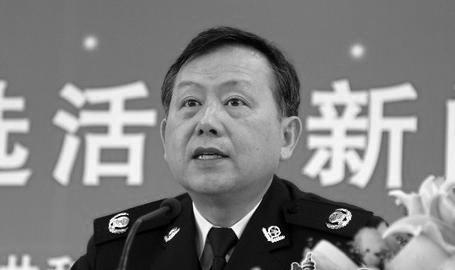Before apparatchiks of the Chinese Communist Party are probed by the Party’s internal disciplinary police, they are gathered for a meeting. Seated underneath a horizontal red banner in their white dress shirts, the chief inspector, his deputies, and the Party organ head formally declare open season on malfeasance.
Usually, a picture of the inspection inauguration accompanies the official announcement—a tedious, 2,000-plus character ramble where the chief inspector formally conveys Party leader Xi Jinping’s exhortations for a more disciplined cadre corps to the head of the Party organ.
In a recently-announced round of investigations that attracted international media attention, however, something is amiss.
The announcement for the investigation into the Leading Small Group for Preventing and Handling the Problem of Heretical Organizations, or the “610 Office,” on the website of the Central Commission for Discipline Inspection, is missing the customary meeting hall photo. The group’s head is also unnamed—the phrase “principal person-in-charge” is used instead. The inspection notices for the other Party and government organs, however, contain this information.
It is unclear what the unusual handling of the 610 Office augurs. It is the only agency whose leadership is left unnamed, on the heels of a tumultuous few years at its highest leadership levels. Before Xi Jinping came to power, the 610 Office had been a protectorate of Jiang Zemin, who established the agency to carry out his pet political campaign—the elimination of the Falun Gong spiritual practice from China. Its leadership was stable.
The power and prestige of the agency suffered a decisive blow with the arrest of former vice minister of public security Li Dongsheng in December 2013. Party media then prominently identified Li using his role as lead of 610 Office, rather than his government position, a significant gesture given the sensitive nature of the extralegal organization, its activities, and its direct ties with Jiang Zemin.
Since the arrest of Li, 610 Office chiefs have been replaced frequently and with increasing furtiveness.
State media identified Liu Jinguo as 610 Office head months after he was appointed to the position. Fu Zhenghua, a former crony then turncoat to Zhou Yongkang, the former security chief, replaced Liu in 2015, but the news was censored shortly after it was published. Those who follow such matters had to read the Hong Kong newspaper Sing Tao to find that Huang Ming, the current vice director of the Ministry of Public Security, had replaced Fu in May.





